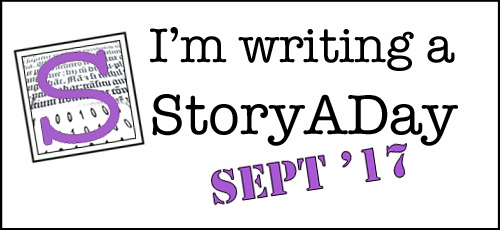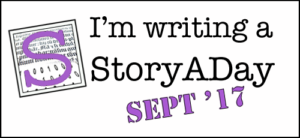
 This story comes from the 2017 collection of Daniel Alarcón’s stories The King Is Always Above The People.
This story comes from the 2017 collection of Daniel Alarcón’s stories The King Is Always Above The People.
I picked up the collection because I saw it on a ‘recommended reading’, highlighting non-white/non-mainstream voices.
Short story collections are a funny thing. Sometimes the whole collection hangs together and I can’t wait to read the next story. Sometimes I hate most of the stories but find a couple of gems.
This collection is like that. It’s not that any of the stories are badly-written– they’re not–I didn’t much enjoy them, on a first read-through.
Having said that, I was really impressed by the long, roughly 14,000-word story in the middle of this collection, The Provincials.
I also found that the collection, as a whole stayed with me.
More on that later, but for now, let’s look at The Provincials.
The Opening Line
The first line of this story does a great job of setting up what is to come in the story,
“I’d been out of the conservatory for about a year when my great-uncle Raúl died.”
Think about everything we know, from that first line:
- This is a story featuring a young adult protagonist.
- They have graduated from a ‘conservatory’, not a technical college, not a university. This is an artistic person.
- This is probably a middle or upper-class person (who else can go to a conservatory?).
- They graduated a year ago, but still define themselves by the conservatory. This is not a person who has gone on to a great and immediately successful career in their art.
- The relative who has died is a great-uncle, not a close relative, so this is not likely to be a story about grief, or about the great-uncle. Instead, it indicates the story is going to involve family and perhaps tenuous connections to one’s roots. Maybe it’s going to be about obligation, or the ties that bind.
- The great-uncle is called Raúl, so this story is not going to be set in WASP-y America.
That’s a fair amount that we can dig out of 16 words, only one of which is more than five letters long.
The Story
This story is about a father and his younger, adult son, Nelson, taking a trip back to the small south-American (?) town where the father grew up, to settle the estate of a distant relative. The father left the town as young man, and moved North, to the city. His elder son has since left the country, for San Francisco, and the younger son, the novel’s protagonist, is expected to join him some day. There are hints, relatively early on that this younger son will not make the big move that his father and brother did,
“Even then I had my doubts, but I would keep believing this for another year or so.”)
They travel south through the country, stopping once in a town that is not his father’s hometown but seems to offer some tastes of what small town life is like in this unnamed country: passion, connection, resentments, grief, love…
When they reach his father’s hometown, the slight awkwardness and disappointed expectations we felt between the young man and his father on their drive is amplified in the awkwardness and resentments between the father and the people of his hometown, and by extension between the son and the people of the town. As readers, we wonder if the father and son will bond, or stay distant and miscommunicative, desperate to escape from each other as well as the town, when their errand is finished.
The story becomes a fascinating reflection on what it means to be part of the more migratory generations, and what it means to stay behind.
At one point, Nelson is sharing information from his older brother’s letters from the USA, and he reflects,
“That statement was contained within one of Francisco’s early dispatches from Oakland, when he was still eagerly trying to understand the place for himself, and not quite able to process many things he saw.”
This was a great reminder to me, as a writer who lives in a place I did not grow up in, that it’s not always a bad thing to have the outsider’s view. That searching for meaning, for understanding, can be a great source of energy in a story.
This Is A Looooong Story. Does It Work?
I love the punchiness of short stories, the way they draw characters in deft sketches. I often get impatient with long short stories, but in this case, it is where this author’s best work is done (at least in this collection).
In this, the longest short story in the collection, we are given a chance to get to know the men in the story (we also get hints of his girlfriend’s personality. There had been few women in the preceding stories and none really qualified as a character. The protagonists had been young, inexperienced, or callous towards women).
In the shorter stories I found myself impatient with, and mostly disliking the protagonists. In The Provincials, I didn’t like start out liking Nelson or his father any more than I liked any of the other protagonists, but at least I got to know them better, which made me more sympathetic towards them.
Alcarón’s writing style benefitted from the roominess of the larger word count. It allowed him to do things like pause in that first village, which provided a satisfying structure to the story when they pause there again, on the way home. It allows him to paint the scenery through the eyes of an outsider—but not an awed tourist. It even allows him to tell part of the story in the form of a mini-play—which makes sense, as the first-person narrator is an aspiring actor.
This story has a strong sense of place (unnamed though it is) that feeds into the character development. At the start of the story, as they leave the city, the narrator observes,
“A few hours south of the capital, the painted slums thinned, and our conversation did too, and we took in the desolate landscape with appreciative silence. Everything was dry: the silt-covered road, the dirty white sand dunes, somehow even the ocean. Every few kilometers, there rose out of this moonscape a billboard for soda or beer or suntan lotion, its colors faded since the previous summer, its edges unglued and flapping in the wind.”
This sets up a lot of the tension between old and new, country and city, the past and the present, but it doesn’t beat you over the head with it.
The Structure
The story starts and ends outside the capital city, which is nevertheless the focus of a lot of the protagonist’s energy. They travel through a village on the way to the father’s home town and, after their visit. The structure of the story echoes the themes of migration and dislocation, and the ‘nesting’ of locales (everything that happens in one direction, is closed out in the other direction on the way home) feels very neat and satisfying, even as the plot leaves questions open.
This is a great lesson in how you can avoid tying all the character questions up in a too-neat bow, but instead use the structure of the story to create a sense that the story is complete.
Also, I think this story has a last line that works spectacularly well. Read it and see what you think!
Do We Need Diverse Books?
I didn’t like the young men who populated this collection. I didn’t enjoy many of their stories, well-written as they were.
But I don’t think that’s always the most important factor in choosing what I read.
People in the #WeNeedDiverseBooks movement often talk about the importance of readers being able to find characters like themselves in fiction. I absolutely agree and applaud that. But it’s also important for people like me, secure in the white, Euro-centric tradition, to read outside our own experience.
These characters come from a world that is utterly foreign to me. Their experiences, their lives, their values are different from mine. It wasn’t a laugh-riot, to read about their lives, even though there was humor in these stories.
What is important, however, is that the voices in this collection had something in common with each other. And by visiting their world, over and over, though the various stories, I became aware of life beyond my own experience. I might not like the characters, or their lives, or some of their choices, but I understand them a little, now.
And if I were to meet a guy like this, out in the real world, I might recognize him, just a bit. I would certainly see him as more than whatever he projected on the surface.
And I can’t think of a better reason for people like me to read and promote literature from voices that are different from our own.
Read the story here
Do you read diverse books? Do you read books that you don’t necessarily enjoy? Is it worth your time? Leave a comment:


 Hi!
Hi!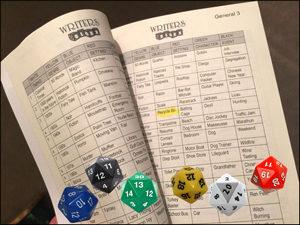
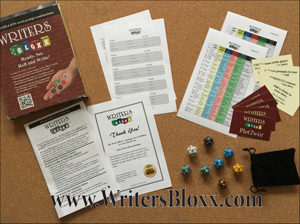




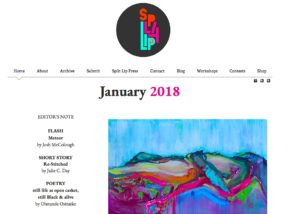




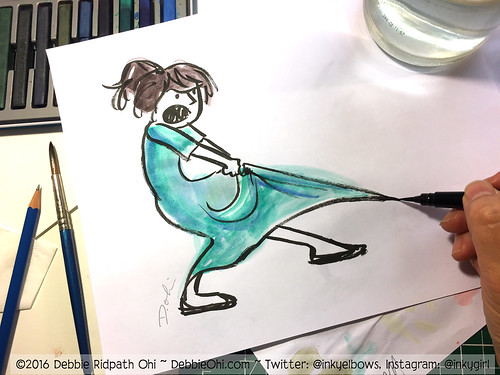 A few days ago, I commented on a Twitter post about a hot-button issue. I don’t normally do that, but I thought I was making a neutral, expanding-the-argument kind of comment.
A few days ago, I commented on a Twitter post about a hot-button issue. I don’t normally do that, but I thought I was making a neutral, expanding-the-argument kind of comment.
